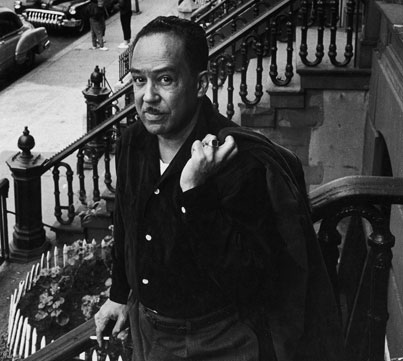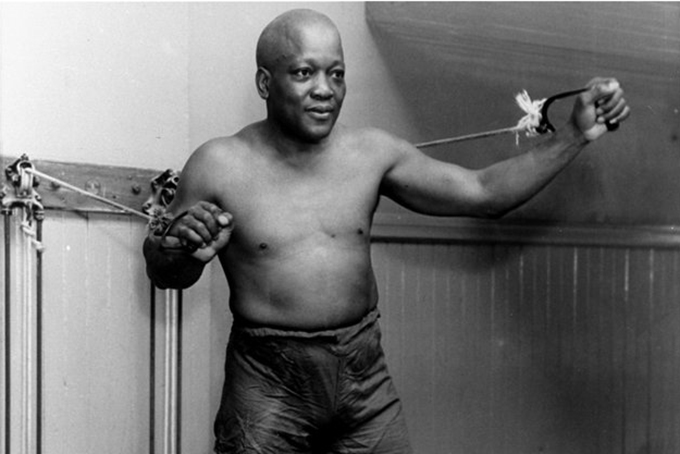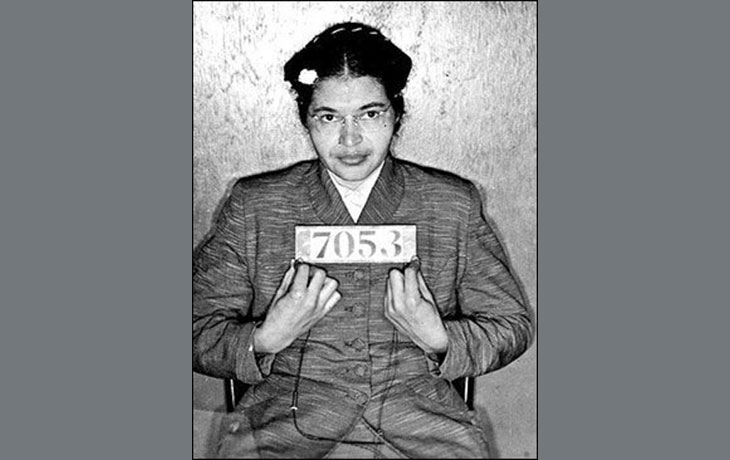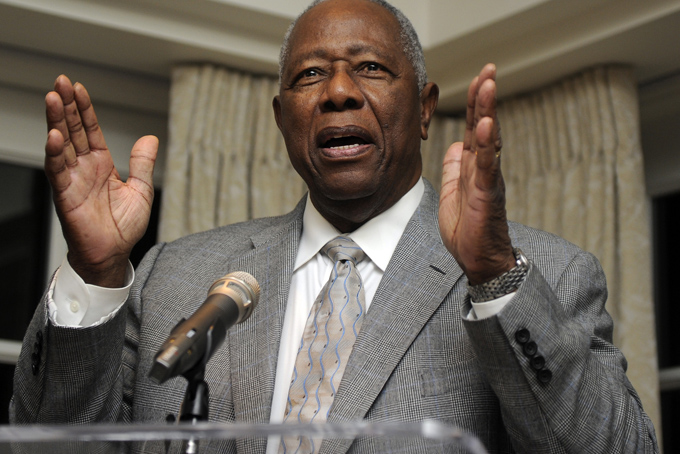JANET JACKSON WARDROBE MALFUNCTION
February 1
1902—Langston Hughes, one of Black America’s greatest poets, is born in Joplin, Miss. He came to fame during the 1920s period of African American cultural expression known as the Harlem Renaissance.

Before his death in 1967, he wrote 15 collections of poetry, two autobiographies and several children’s books. Hughes can best be described as “dignified, but militant.” He captured the spirit of the Harlem Renaissance writing in 1926, “We younger Negro artists now intend to express our dark-skinned selves without fear or shame. If White people are pleased, we are glad. If they aren’t, it doesn’t matter.”

1926—The first “Negro History Week” is celebrated. Founded by Black historian Carter G. Woodson, the “week” became Black History Month in 1976. Woodson said he would welcome the day when a separate Black history celebration was no longer necessary because his ultimate goal was a true history “devoid of national bias, race hate and religious prejudice.”
1960—The “sit-in” movement as a protest method for civil rights is born on this day in Greensboro, N.C., when four North Carolina A&T students sit down at a “Whites only” lunch counter and refuse to move until served or arrested. Within two weeks the tactic had spread to 15 cities in five Southern states. The original four students were Joseph McNeil, Ezell Blair, Franklin McCain and David Richmond.
1965—One of the largest mass arrests of the Civil Rights Movement occurs when more than 700 people are jailed as a result of a protest in Selma, Ala. Among those thrown in prison was Rev. Martin Luther King Jr.

2004—As a result of a so-called “wardrobe malfunction” singer Janet Jackson’s breast was briefly exposed while performing during the Super Bowl’s half-time show. The incident created a national controversy, including fines by the FCC.
-
February 2
1839—Black inventor Edmond Berger develops one of the first spark plugs made in America.
-
February 3

1908—Jack Johnson becomes the first Black heavyweight boxing champion by defeating Tommy Burns in Australia. Although he was not officially given the title until 1910 after he defeated the American Jim Jeffries in Las Vegas. Many Whites reacted violently to his defeat of Jeffries sparking riots in several cities. In Johnson’s home state of Texas, films of Johnson defeating White opponents were banned. Johnson reigned as heavyweight champion for 7 years. But he had two “faults”—he believed in speaking his mind and he liked White women. Those two tendencies landed him in jail in 1920 on trumped up charges of violating the Mann Act—a law that made it illegal to transport White women across state lines for “immoral purposes.” Johnson, who is arguably the greatest boxer who ever lived, died in an automobile accident near Raleigh, N.C., on June 10, 1946.
-
February 4

1913—Civil rights heroine Rosa Parks is born on this day in Tuskegee, Ala. It was her refusal in December 1955 to give up her seat to a White man on a Montgomery, Ala., bus that sparked the modern Civil Rights Movement. For refusing to obey the laws of segregation, she was arrested and convicted. Montgomery Blacks responded with a boycott of city buses. A young minister named Martin Luther King Jr. was called upon to lead the boycott, which would last for nearly 13 months. The drama and accompanying legal challenge all the way to the U.S. Supreme Court captivated the nation and propelled Dr. King into the national international spotlight as the nation’s premier civil rights leader. Mrs. Parks died in 2005 at 92.
-
February 5
1866—Congressman Thaddeus Stevens, one of the great White heroes of Black history, offers his famous amendment to the Freedman’s Bureau bill to use land confiscated from former slave owners as well as some public lands to guarantee each adult former slave “40 acres and a mule.” However, even after the Civil War there was enough anti-Black and pro-South sentiment in Congress to defeat the measure 126 to 37. If the Stevens measure had passed, it may have changed the entire course of Black history in America because the former slaves would have had a solid economic foundation upon which to build their new lives and the poverty which plagued African Americans for the next 100 years could have been prevented.

1934—Henry “Hammerin’ Hank” Aaron was born on this day in Mobile, Ala. The baseball great and eventual home run king (until Barry Bonds) began his career with the old Negro Baseball League playing for the Indianapolis Clowns before joining the Atlanta Braves in 1954.

1945—Jamaican Reggae legend Bob Marley, is born on this day as Robert Nesta Marley in Nine Miles, Saint Ann, Jamaica. He used his music not only to entertain but to tirelessly spread Reggae and the Rastafarian religion from Africa to Europe and the U.S. Much of his music deals with the struggles of the impoverished and the oppressed. Marley died from complications due to cancer in Miami in May 1981.
-
February 6
1820—The first organized emigration of Blacks from the U.S. back to Africa occurs. Eighty-six free Blacks leave New York Harbor on a ship named the “Mayflower of Liberia.” The group lands on the West African coast on March 9 and joins with ex-slaves freed by Britain to help form what would eventually become the West African nation of Sierra Leone.

1993—Tennis star Arthur Ashe dies on this day after contracting AIDS from a 1988 blood transfusion. Ashe was the first African American to win at Wimbledon defeating Jimmy Connors in the finals in 1975. Born and raised in Richmond, Va., Ashe was also known for his activism in various social causes. Once asked what type of attitude was required of a champion, Ashe responded, “The ideal attitude is to be physically loose and mentally tight.”
-
February 7
1871—Alcorn A&M College (later “University”) opens in Mississippi. The great Black legislator Hiram Revels resigns his seat in Congress to become the first president of the institution, which would grow to become one of the leading Black colleges in the nation. At first it was only open to men but began admitting women in 1895.
1883—Eubie Blake is born James Hubert Blake in Baltimore, Md. Along with Noble Sissle, he popularizes Ragtime music. The genre had its birth in Black bars and whore houses in Southern and Midwestern cities. But Sissle and Blake took it mainstream with hits ranging from the “Charleston Rag” to “I’m Just Wild about Harry” to “Shuffle Along.” Blake died when he was 100 years old on Feb. 12, 1983.
1967—Comedian-actor Chris Rock is born on this day in Andrews, S.C. He is the oldest of seven children.
